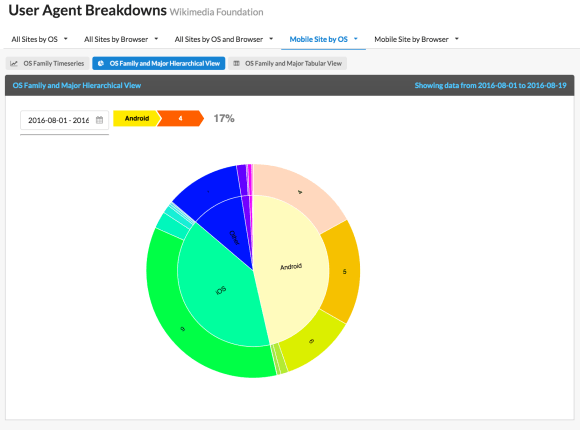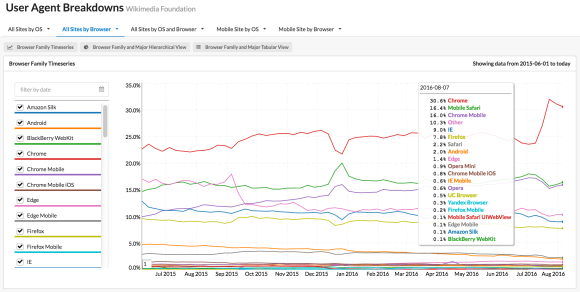
It is very likely that the most popular browser on the internet in the first week of August 2016 was Chrome, version 52 with about 30% market share.
How do we know this? Wikimedia projects reach hundreds of millions of unique devices every month and, as such, are a good barometer of browser popularity. For every request that comes into one of our projects, we note the browser and the OS of the device and report that data, aggregated weekly. Data is public and free to the world, in line with our values and privacy policy.
Browser stats for Wikimedia projects are available at analytics.wikimedia.org.

Browser data provides many insights into how our users interact with Wikimedia sites. For example: one year ago, things were about the same and Chrome was in the lead for overall traffic—but for mobile browsers, things have changed. Chrome Mobile has gained a lot of popularity in the last year (10% increase in usage), and Chrome and Safari now together account for about 70% of pageviews in Wikimedia’s mobile sites. Since the majority of our mobile traffic is coming from Android devices, this increase of Chrome Mobile usage could indicate that many Android users have shifted to Chrome Mobile as their browser of choice in the last year.
Furthermore, Android 4, 5 and 6 are about equal when it comes to pageviews (about 15%), which raises some questions about software upgrades in not-so-new Android devices. Android 2, however, has almost disappeared from our stats with less than 1.5% of pageviews (down almost 2% from last year at this time).
Dan Andreescu, Senior Software Engineer
Marcel Ruiz Forns, Software Engineer (International)
Nuria Ruiz, Lead Software Engineer (Manager)
Wikimedia Foundation


Can you help us translate this article?
In order for this article to reach as many people as possible we would like your help. Can you translate this article to get the message out?
Start translation